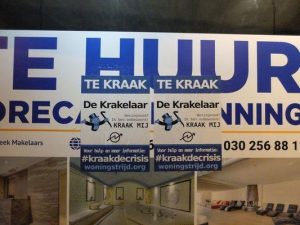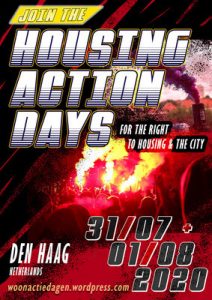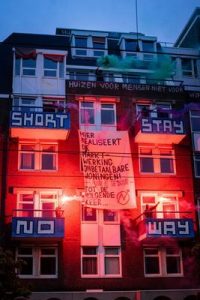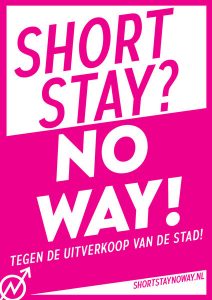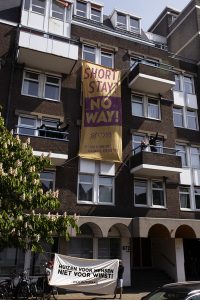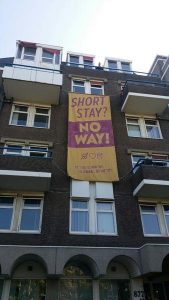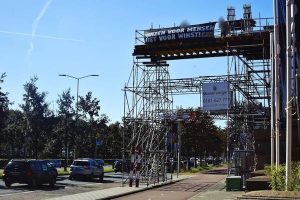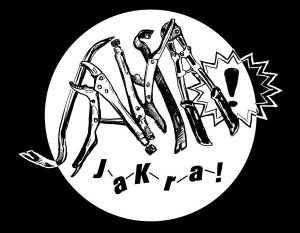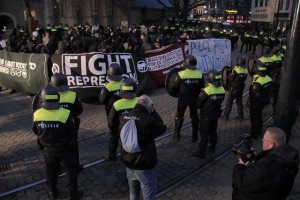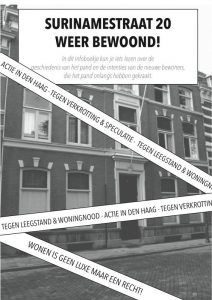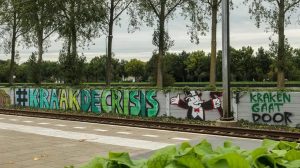 This year, October 1st marks the ten year anniversary of the Squatting Ban coming into effect in the Netherlands.
This year, October 1st marks the ten year anniversary of the Squatting Ban coming into effect in the Netherlands.
Much like what we saw in the UK following the criminalisation of squatting in 2012, the repercussions have been drastic for our community and our movement. We’ve been pushed out of city centres, drastically reducing our visibility and contact with the public outside our own community. The number of squats across the country has been divided by ten, and the legal risks surrounding squatting have risen. Perhaps most damaging of all, our community is sorely lacking in participation from a “new generation”. A large number of people in that age group are totally oblivious to the concept of squatting.
Since the squatting ban came into effect, homelessness has doubled. Simultaneously, waiting lists for social housing have grown enormously, the average waiting time being nine years. The total lack of affordable housing constitutes a housing crisis which, since 2020, is being referred to as a housing emergency. [Read More]
